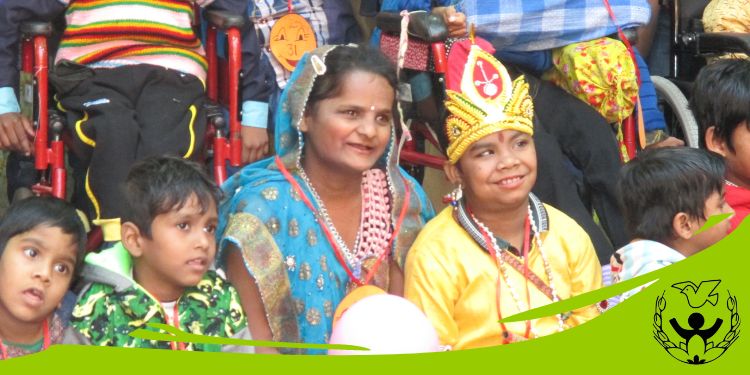
SONAM, TOWARDS AUTONOMY
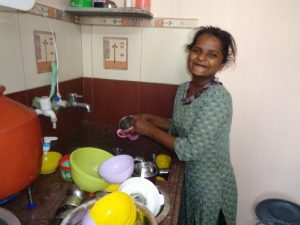
We start our new column “STORIES FROM ANOTHER WORLD” with the story of Sonam, from India. With these stories we want to share with you some signs of hope from those contexts where hope seems unable to exist … to proove that a better world is possible!
Here is the story of Sonam, a 16-year-old girl with mental retardation that her family has always considered a problem, but now thanks to Navchetan she helps with the housework and helps her whole family!
Sonam Prakash is a 16-year-old mute and slightly mentally retarded girl. When she was found by our staff she was unable to perform daily personal hygiene and care tasks and was living in a state of depression due to an inability to communicate. Thanks to our program in Navchetan, she can now write his name, attends school together with her classmates and she can wash and dress independently.
She was born on 1 January 2006 to Mr Prakash and Mrs Bimla, the youngest of five children. She has three older brothers, two of whom are already married, and an older sister. She was born at home in Jawhar Nagar slum through a normal delivery with the help of a midwife. However, once born, the baby did not cry and she was born with an amniotic sac. The mother suffered from hemorrhaging for three months after giving birth and had been very weak and anemic since pregnancy. Sonam was kept in an incubator for a week and doctors diagnosed that her brain nerves were swollen and therefore abnormal. At the age of three she then fell from the terrace, suffering a head and spine injury. Sonam is mute but physically healthy and can hear.
Due to the conditions of poverty and ignorance of the family, no one has ever considered providing for the child’s mental and psychological health. She was not bathed regularly or even dressed properly. Their house was very small and there was no privacy, so she didn’t seem to have the slightest sense of shame. For these reasons she was also sexually abused as a child and was very depressed as she was unable to communicate with anyone.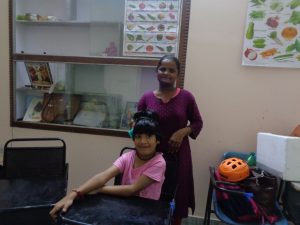
Sonam was identified by Navchetan staff and registered in the project in May 2019. Although she had two parents, an older sister and two stepsisters at home, no one ever took care of her hygiene. So the goal of Navchetan staff was to make her able to take care of her personal hygiene through teaching daily activities (ADL). She was given a bar of soap, a towel and a couple of clothes to wash and dress. At first the sisters stayed with her to show her how to clean herself, then they taught her how to wash her clothes and let them dry in the sun. They then slowly taught her how to brush her hair, brush her teeth and get dressed.
The staff then assisted the family in preparing the necessary documents to obtain the certificate of disability and the state pension of Rs 750. Per month. In 2021, she was admitted to the state school in Mukesh Nagar. She is now in class 4, despite not being able to read and write. She obtained the scholarship from the school itself as well as being part of the food distributions organized on special occasions.
After a two-year hiatus due to the coronavirus, when the CBR center restarted, we set a vocational training objective for all adolescents. She was not interested in sewing clothes or in any craft business. Since her family is engaged in house cleaning work, we have tried to teach her household chores like cutting vegetables, washing dishes, sweeping floors, preparing food, serving it on the table etc. She was also taught to write her name.
She loves music and dance, every day she takes part in dances with the younger children to have fun. Today we find an autonomous Sonam, matured, who is able to keep herself clean by herself and to carry out all the domestic activities in the best possible way. She was also given the opportunity to participate in plays and ballets. She likes to wear make-up and dress up for special occasions. She loves coming to the centre, which is an opportunity for her to learn new activities to do independently, as well as having a lot of fun.
We thank all those who have contributed to making this possible, without your help Sonam would still be locked up in her house depressed and with no prospects, but now she is a lively girl whose future is opening up ahead! Thank you!
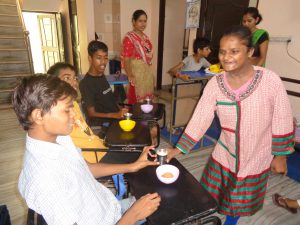

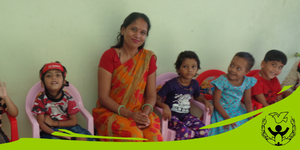
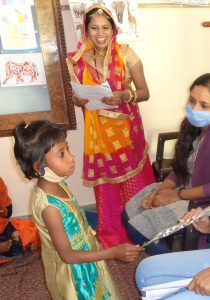
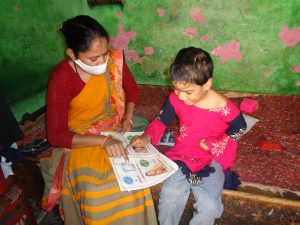
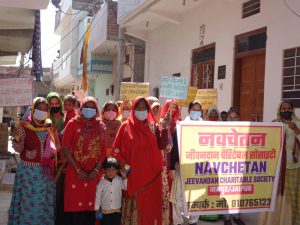
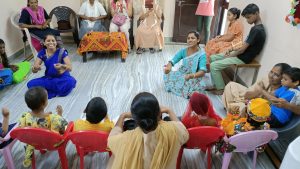
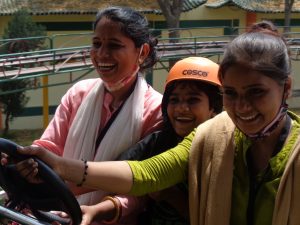 Consequently she kept on working for Navchetan, in spite of her family’s disapproval and the fights with her husband, they had several tense periods and her marriage was really at risk. Anyway Urmila was convinced and she even told to her husband that she would have chosen her work instead of him, because she felt more at home in Navchetan than with her relatives.
Consequently she kept on working for Navchetan, in spite of her family’s disapproval and the fights with her husband, they had several tense periods and her marriage was really at risk. Anyway Urmila was convinced and she even told to her husband that she would have chosen her work instead of him, because she felt more at home in Navchetan than with her relatives.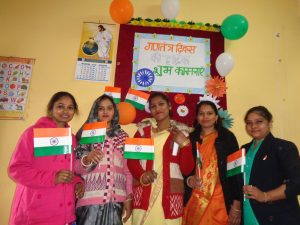
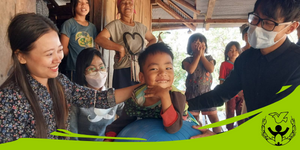
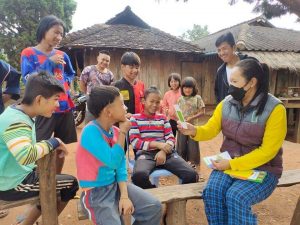
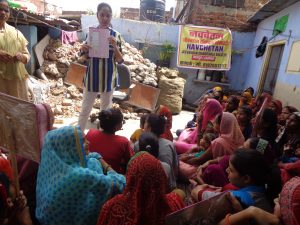
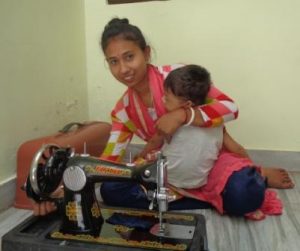
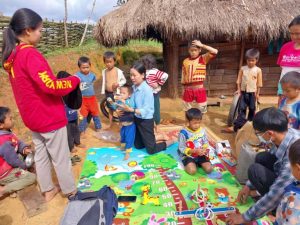
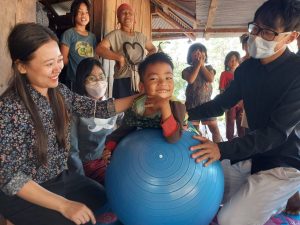

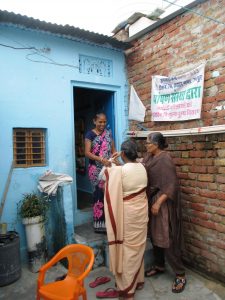
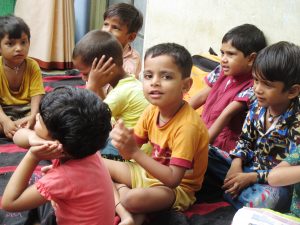
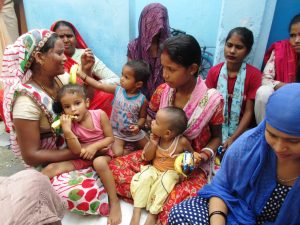 There is also a program of assistance for pregnant women which supports nutrition in pregnancy period and until 15 days after the delivery, both for moms and babies. In this program moms are coming every day at the center for the distribution of food items and for awareness on health matters and prevention.
There is also a program of assistance for pregnant women which supports nutrition in pregnancy period and until 15 days after the delivery, both for moms and babies. In this program moms are coming every day at the center for the distribution of food items and for awareness on health matters and prevention.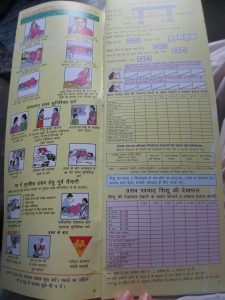
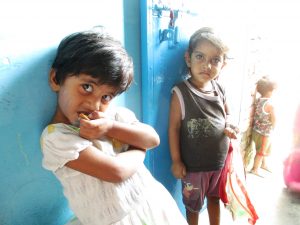
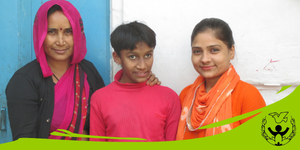
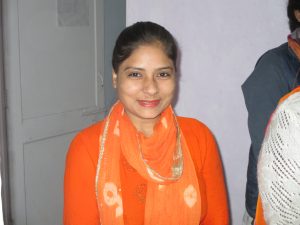
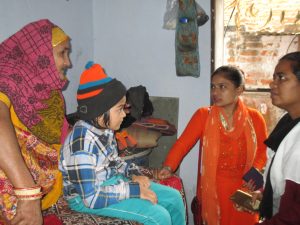
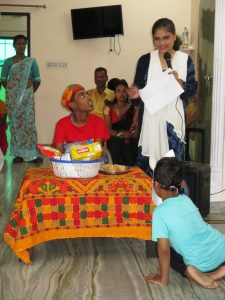
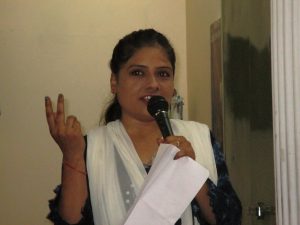
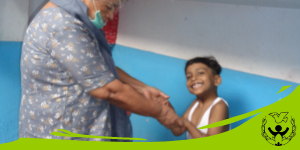
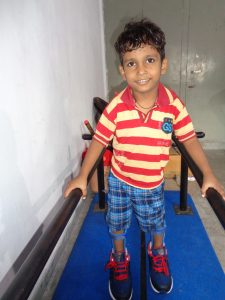 Sachin lives in Jawahar Nagar slum and when we found him in 2019 he couldn’t even sit alone or grab objects, thanks to our Navchetan program he can now walk on his own and he has a lot of new friends!
Sachin lives in Jawahar Nagar slum and when we found him in 2019 he couldn’t even sit alone or grab objects, thanks to our Navchetan program he can now walk on his own and he has a lot of new friends!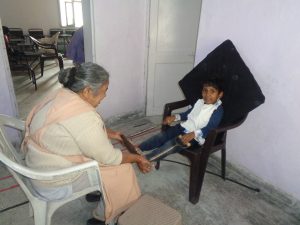
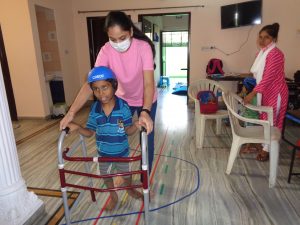 able to walk holding the hands of another person. He was not able to do anything by himself including consuming food and water.
able to walk holding the hands of another person. He was not able to do anything by himself including consuming food and water.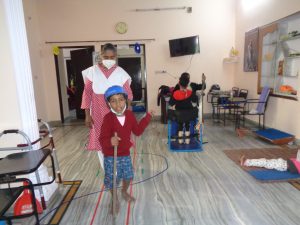
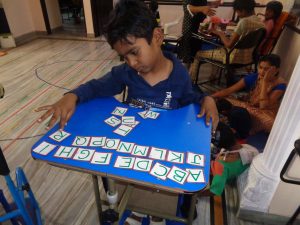 potatos, writing and reading alphabets and two letter words. Numeric he knows up to 50 to write and say. Adding is easy for him compared to deductions. He can communicate but he has got a thick tongue so clarity is less.
potatos, writing and reading alphabets and two letter words. Numeric he knows up to 50 to write and say. Adding is easy for him compared to deductions. He can communicate but he has got a thick tongue so clarity is less. 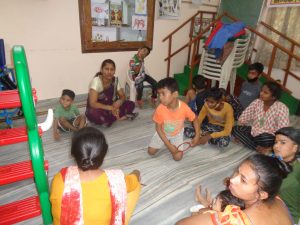
Recent Comments